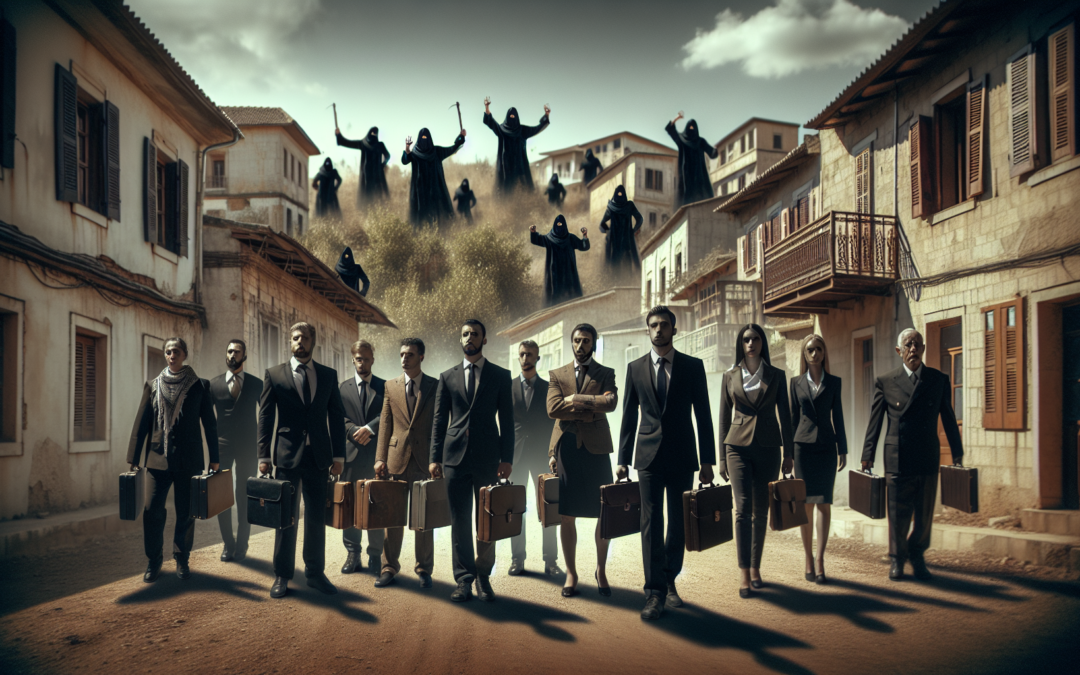In the Heat of Oversight: Madison’s Guardians At an Impasse
As the sun burns across the North Carolina skies, draping its golden farewell only to rise again with resolute tenacity, so too do the officers of Madison Police Department face the dawning of yet another day burdened with both promise and peril. Within this crisply defined context, clarity gives way to complexity and certainty struggles against a tide of emerging doubts. They approach each patrol not just as enforcers of law, but indeed as community stalwarts, protectors, and at times, reluctant warriors cast onto uncertain terrains not of their own making.
The Magnified Lens of Oversight
Every officer begins their shift acutely aware that beneath the surface of their visible vigilance, vigilance of another kind lurks—cameras scrutinizing their every action, recording their every word. This is not just oversight but the omnipresent eye of auditors, forever capturing and codifying each nuanced interaction for public appraisal and often harsh critique. While transparency is the beacon toward which society aspires, the journey there is strewn with obstacles—primarily, the semblance of mistrust that overshadows every positive endeavor undertaken by law enforcement.
In Madison, a small town imbued with the echoes of historical resilience and present-day resilience, police officers must reconcile their roles within this intensified inquisitional reality. The weight of it all is palpable, leaving behind an emotional, physiological, and psychological toll that these men and women bear with silent dignity.
A Day in the Life: Between Tradition and Reform
Policing has always been rife with challenges, yet never has the environment been quite so adversarial. While reform posits a clear future direction, what gets overlooked are the foundational principles that remain entrenched within these officers. Honor, respect, and service run through their very veins, coursing with every beat of their hearts as the lifeblood of their commitment. When duty calls, it is to these enduring values that the officers of Madison steadfastly hold.
At dawn, when quiet finally embraces the sleepless towns, Officer Maria Sanchez prepares for her shift at the precinct. Her morning routine consists not just of donning her uniform, but of arming herself with patience, empathy, and fortitude. Maria’s thoughts often stray to the wellness of her colleagues—fellow officers who, with each fleeting hour, struggle to balance the empathetic demands of their position with the severe portrayal of their roles that broadside headlines tend to craft.
The Psychological Strain of Policing the Past and the Present
It is in these moments of spare reflection that vulnerability sinks in, the mental strain of ceaseless labor standing as its ominous partner. Today’s law enforcement officers stand in the crossfire not of bullet and blade alone, but also of stigma, stereotype, and sweeping judgment passed by voices beyond the precinct walls. Many officers wrestle with the isolation borne from a perceived schism between themselves and the citizenry they have sworn to protect—a divide widened by digital dissemination and polarized narratives.
Officer James Avery remarks wistfully—in moments of introspection amidst nightly patrols—that he never loses faith in the power of positive community interaction. His afternoon stops often see him at the elementary school, greeting youngsters full of wonderment at a world they are only beginning to explore. In their guileless laughter and curiosity, he sees the potential for new beginnings amid mounting scrutiny.
Mentorship Amid Division: Defending a Noble Legacy
Certainly, division has galvanized the very air breathed in Madison. Yet, from such fragmentation emerges another test of vigorable aspiration—mentorship to the few that aspire still to join this fraternity. Seasoned officers like Sergeant Robert Thompson bridge generational divides through instruction, finding fulfillment in imparting decorum, poise, and ultimate responsibility. These tutelaries inspire perspicacity among recruits, equipping them with the perspectives necessary to dictate nuanced decisions in an ever-changing landscape.
For an honest peek into both the divergences and shared aspirations held by Madison’s finest, many turn to platforms willing to offer unbiased scrutiny. The John Ligato Show prides itself on moderating pivotal discussions that highlight both gravitas and sentiment. Insightful episodes like this one continue exploring what remains so often swept up in ideological categories—that behind every occurrence is a tale of individuals shoulder-deep in fighting battles against embitterment and disheartened ethos.
In this challenging arena, one that has seen the digital partner continues wielding influence; one increasingly representative of national narratives—every step represents contrastive redemption or rebuttal. These officers reside in uncertain juxtaposition with reenvisioned contemporary protocols; their oath honors tradition while endorsing observations its relevance invokes—instilling optimism amid trial and transcendence despite turbulence.
Conclusion: Commitment Defined By an Invisible Companion—Hope
Though the waves crashing against Madison’s steadfast rocks wear away at facadic elements, a core of tenacity remains resolute beneath. In the nexus of this documented saga, and within newly forged connections shared amidst apprehension stand officers unbound by limitation, daring a future docked, undaunted by hesitation—a testimony singularified not through divisive illustrations absolved by history’s hands, but defined by an invisible companion of humanity: hope. As long as hope breathes its prophetic trust, together stand embodied traditions enshrined, producing an unwavering face—eternally swarming with vitality—a consummating promise giving testament fantastic amidst trials prowling charged and romantic pages ahead of tomorrow’s unrhymed story.

Recent Comments